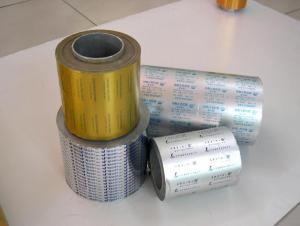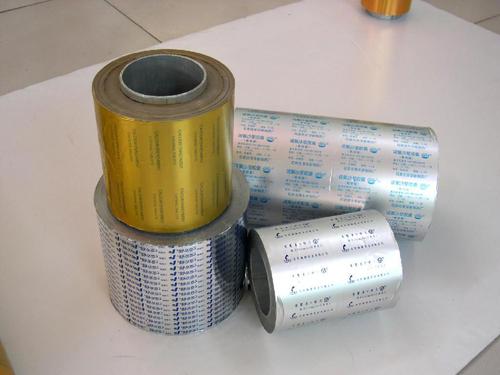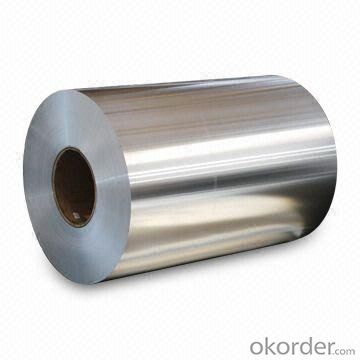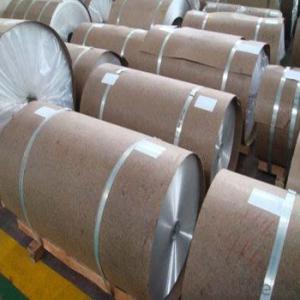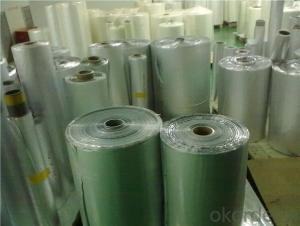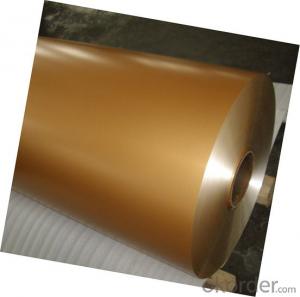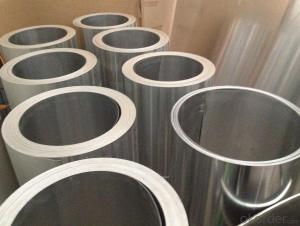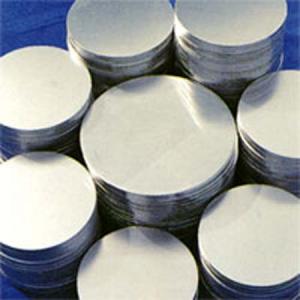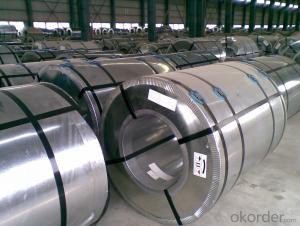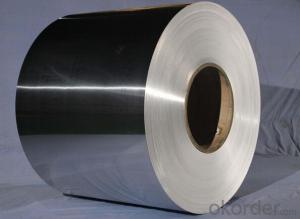Hvac Aluminum Coil - Aluminium Coil and Sheet Manufactured in China
- Loading Port:
- Shanghai
- Payment Terms:
- TT or LC
- Min Order Qty:
- 5 m.t.
- Supply Capability:
- 9000 m.t./month
OKorder Service Pledge
OKorder Financial Service
You Might Also Like
Aluminium is a relatively soft, durable, lightweight, ductile and malleablemetal with appearance ranging from silvery to dull gray, depending on the surface roughness. It is nonmagnetic and does not easily ignite. A fresh film of aluminium serves as a good reflector (approximately 92%) of visible light and an excellent reflector (as much as 98%) of medium and far infrared radiation. The yield strength of pure aluminium is 7–11 MPa, while aluminium alloys have yield strengths ranging from 200 MPa to 600 MPa. Aluminium has about one-third t,e density and stiffness of steel. It is easily machined, cast, drawn and extruded.
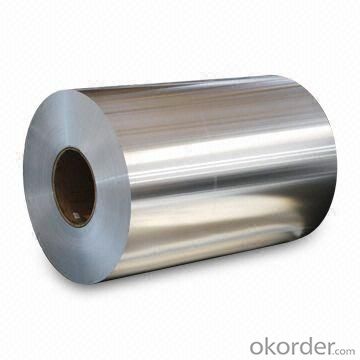
Product Name: Aluminium Coil and Sheet
What are the Specifications of our aluminum coils?
Alloy | 1060,1050,1350,1200,1100,2024,3003,3105,3004,3104,4004,5052,5182,5083,5754,6061,7075, 8011 |
Temper | O, H12, H14, H16, H18, H19, H42, H44, H46, H48,and so on. |
Width | 20-2800mm |
Thickness | 0.2 to 10mm |
Core Inner Diameter | 75mm, 150mm, 505mm Customized requirements are accepted |
Roll Diameter | 2800mm max |
Surface | Bright and smooth surface, without any defect |
Packing Detail | Packing material: Wooden pallet +paperboard +steel strip Packing style: Eye to wall; Eye to Sky Customized requirements are accepted |
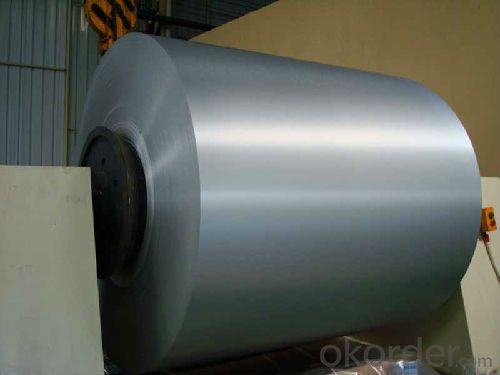
Shipping
1. Batch goods:By Sea, LCL or FCL |
2.Sample: FedEx/DHL/UPS/TNT, Door-to-Door |
3. Delivery Time: 15-25 days for batch goods; 3-7 days for samples; |
4. MOQ: 1 MT |
Payment Terms
Payment: T/T, L/C |
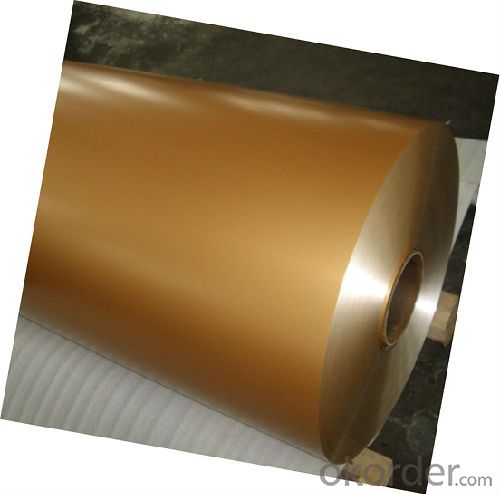
- Q: Can aluminum coils be used in the production of aluminum composite doors?
- Yes, aluminum coils can be used in the production of aluminum composite doors. Aluminum composite doors are made by sandwiching a core material between two aluminum sheets. The core material can be made of different materials such as polyethylene or mineral-filled fire-resistant materials. Aluminum coils are a popular choice for manufacturing aluminum composite doors because they offer several advantages. Firstly, aluminum is a lightweight material, which makes the doors easier to handle and install. Secondly, aluminum is highly resistant to corrosion, ensuring durability and longevity of the doors. Additionally, aluminum coils can be easily shaped and molded, allowing for the creation of custom designs and styles. The use of aluminum coils in the production of aluminum composite doors also provides flexibility in terms of color options. Aluminum can be powder coated or painted in different shades, allowing for a wide range of choices to suit various architectural styles and preferences. Overall, aluminum coils are a suitable and commonly used material in the production of aluminum composite doors due to their lightweight, corrosion-resistant, and customizable properties.
- Q: What are the different coil diameters available for aluminum coils?
- The different coil diameters available for aluminum coils can vary depending on the manufacturer and specific application. However, common coil diameters for aluminum coils range from as small as 1 inch to as large as 60 inches or more.
- Q: like i need a good slogan for aluminum its for a school project like for arsenic's is Arsenic's a sure fire way to deal with a rat, It works better than a mean old cat!
- Aluminum: Keeping stoners amazed for over 50 years!
- Q: This question asks for guidelines on how to properly store aluminum coils to ensure their safety and longevity.
- <p>To store aluminum coils, follow these steps: Ensure the storage area is clean, dry, and free from dust and moisture. Keep the coils on wooden pallets or racks to avoid direct contact with the ground. Stack the coils with the same size and type to prevent damage. Use protective wrapping or covers to prevent scratches and dirt accumulation. Maintain proper ventilation to prevent condensation. Store coils away from corrosive materials and chemicals. Regularly inspect the coils for any signs of damage or corrosion. By following these guidelines, you can maintain the quality and integrity of aluminum coils during storage.</p>
- Q: Can aluminum coils be used in electrical conductors?
- Yes, aluminum coils can be used in electrical conductors. Aluminum is a good conductor of electricity and is commonly used in various electrical applications, including wiring, power transmission, and motor windings.
- Q: ok-so lately I've noticed that everytime i wrap food in aluminum foil it starts to eat tiny holes in it! so far it has happened when I put it on chicken breasts and froze them--over a warm eggplant parm that i put in the fridge and now, today on coleslaw--which was never hot! what the heck is going on? I've never seen this before! any ideas? it is a name brand foil too...tx!
- Was there tomato in it? You cannot put tomato or acidic things on aluminum foil (or at least you are not supposed to. Don't use foil to store foods that are high in acids. This means tart fruits and dishes made with vinegar, tomatoes, or tomato sauce. After a few days in foil, the acids in lasagna, for example, interact with the aluminum and erode the foil.. Small amounts of aluminum can then migrate into the food, creating both pinprick holes in the wrap and a metallic taste in the lasagna. Also, white spots (actually aluminum salts) can form on these foods when their acidity reacts with the aluminum. Theoretically you can cut these spots away; they're not harmful. But they are certainly not appetizing either, so stick to plastic storage for the acidic goods. I got the above paragraph from aluminum foil Do's and Don'ts
- Q: Are aluminum coils suitable for gutter systems?
- Yes, aluminum coils are suitable for gutter systems. Aluminum is a popular choice for gutter systems due to its durability, lightweight nature, and resistance to rust and corrosion. It is a cost-effective option that can withstand harsh weather conditions and has a long lifespan. Additionally, aluminum coils are easy to install and maintain, making them an ideal choice for gutter systems.
- Q: Are aluminum coils suitable for heat exchangers?
- Yes, aluminum coils are suitable for heat exchangers. Aluminum has excellent thermal conductivity, corrosion resistance, and lightweight properties, making it an ideal material for heat transfer applications. Aluminum coils can efficiently transfer heat between fluids in heat exchangers, making them a popular choice in various industries.
- Q: What are the different coil coating options for aluminum coils?
- There are several different coil coating options available for aluminum coils, each offering unique benefits and characteristics. 1. Polyester: Polyester coil coatings are the most commonly used option for aluminum coils. They provide excellent durability and resistance to weathering, making them suitable for outdoor applications. Polyester coatings also offer good color retention and are available in a wide range of colors and finishes. 2. Polyvinylidene Fluoride (PVDF): PVDF coatings are known for their exceptional performance and durability. They have excellent resistance to UV rays, chemicals, and extreme weather conditions. PVDF coatings also provide outstanding color retention and maintain their appearance for a longer period of time, making them ideal for architectural applications. 3. Polyurethane: Polyurethane coatings offer a high level of resistance to abrasion, chemicals, and corrosion. They provide good adhesion and flexibility, allowing for easy forming and bending of the coated aluminum. Polyurethane coatings are often used in industrial applications where durability and protection are crucial. 4. Silicone-modified Polyester (SMP): SMP coatings combine the benefits of both polyester and silicone coatings. They offer excellent resistance to fading, chalking, and environmental pollutants. SMP coatings provide good flexibility and adhesion, making them suitable for a wide range of applications. 5. Epoxy: Epoxy coatings are known for their excellent adhesion and corrosion resistance. They provide a hard, durable finish that is resistant to chemicals and abrasion. Epoxy coatings are commonly used in industrial settings where harsh conditions are present. 6. Plastisol: Plastisol coatings are typically used in applications that require a textured or decorative finish. They offer good flexibility and impact resistance. Plastisol coatings can be customized with various patterns and textures to enhance the appearance of the coated aluminum. Overall, the choice of coil coating option for aluminum coils depends on the specific requirements of the application, such as the desired level of durability, weather resistance, color retention, and appearance. It is important to consider these factors when selecting the most suitable coating option for your aluminum coils.
- Q: Can aluminum coils be used in coil coating processes?
- Yes, aluminum coils can be used in coil coating processes. Aluminum is a commonly used material for coil coating due to its durability, lightweight nature, and resistance to corrosion. It can be easily coated with various finishes and colors, making it suitable for a wide range of applications in industries such as construction, automotive, and appliances.
Send your message to us
Hvac Aluminum Coil - Aluminium Coil and Sheet Manufactured in China
- Loading Port:
- Shanghai
- Payment Terms:
- TT or LC
- Min Order Qty:
- 5 m.t.
- Supply Capability:
- 9000 m.t./month
OKorder Service Pledge
OKorder Financial Service
Similar products
Hot products
Hot Searches
Related keywords
